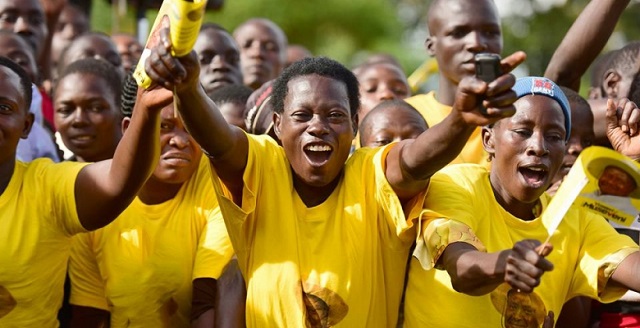Uganda is a country where our democratic institutions are still in their formative stages, allowing limitless expenditure in political campaigns by candidates poses an existential threat to the very fabric of our nascent democracy. Limitless campaign spending is ipso facto fundamentally ill-suited and dangerous for a political landscape still grappling with fragility and inequality. Many countries around the world impose limits on money expenditure in political campaigns, driven by a range of democratic principles and concerns.
Article 21 of the 1995 constitution of Uganda provides for a right to equality which must be safeguarded at all cost. A failure to regulate the arena of campaign finance allows the influence of wealthy individuals and corporations to drown out the voices of individual citizens . . . causing the public to become disillusioned with and mistrustful of the political system.( Primo, D. M., and J. Milyo. “Campaign Finance Laws and Political Efficacy: Evidence from the States.” Election Law Journal, 2006, as quoted in School of Arts & Sciences (University of Rochester).
Take an example of the United Kingdom which has long-standing limitations on spending by individual parliamentary candidates, though national party spending is less restricted. France and South Korea Combines campaign spending limits with a system of public reimbursement for electoral expenditures.
According to Avis, E., F. Finan, and C. R. Moreira, they are quoted that we find that stricter limits increase political competition by creating a larger pool of candidates that is on average less wealthy. Moreover, we find that stricter spending limits reduce the incumbency advantage, causing mayors to be less likely to be reelected. (The Effects of Campaign Spending Limits on Political Competition and Incumbency Advantage.” National Bureau of Economic Research Working Paper No. 23508, 2017.)
Strauss, D. A. “What is the Goal of Campaign Finance Reform?” University of Chicago Legal Forum, 1995, p. 147 provided that the one conventional justification for campaign-finance reform that succeeds in principle is the argument that the current system of campaign finance allows too much political inequality. Apart from any other agenda, one might justify reform on the ground that inequalities in wealth should not be translated into inequalities in political influence.
Reasonable limitations on campaign expenditure may be justified where this is necessary to ensure that the free choice of voters is not undermined or the democratic process distorted by the disproportionate expenditure on behalf of any candidate or party.( United Nations Human Rights Committee, General Comment No. 25, “The right to participate in public affairs, voting rights and the right of equal access to public service” (1996), para. 13.)
The cornerstone of any thriving democracy is the principle of political equality, where every citizen’s voice and vote hold equal weight. Unlimited campaign spending by wealthy candidates fundamentally distorts this ideal. It creates an insurmountable barrier for less affluent but potentially more competent and representative individuals, effectively transforming elections into auctions where the highest bidder prevails. This undermines Article 1 of the Constitution of the Republic of Uganda, 1995, which vests all power in the people, and Article 21, guaranteeing equality before the law. If only the rich can effectively compete, the democratic process ceases to be a genuine expression of popular will and becomes a plutocracy.
It is a tool in Preventing Corruption and Undue Influence, the luganda saying goes”sente wekuba egonzaawo” has eroded away political reason and political ideologies. In a political system still building strong checks and balances, large sums of money injected into campaigns, even by candidates themselves, can foster an environment ripe for corruption or the appearance thereof. While direct quid pro quo corruption might be difficult to prove, the sheer financial power can create a perception that political office is bought, not earned. This erodes public trust and undermines the integrity of institutions meant to serve the public good. The Anti-Corruption Act, 2009, and the Leadership Code Act, 2002, in Uganda, aim to combat corruption and promote integrity in public office. Unlimited campaign spending creates loopholes and pressures that can inadvertently circumvent the spirit of these laws. Even the candidates after winning races are super contented that the electorates owe them nothing because they had paid for their votes.
There is a need to Protect the Integrity of the Electoral Process:. Here is the point, The Electoral Commission of Uganda, established under Article 60 of the 1995 Uganda Constitution as amended , is mandated to conduct regular, free, and fair elections. Limitless spending can compromise the fairness of these elections by allowing candidates to overwhelm voters with propaganda, drown out alternative voices, and potentially engage in practices that, while not overtly illegal, distort the electoral discourse. It shifts the focus from substantive policy debates to a mere contest of financial might, hindering informed voter choice.
In conclusion, for Uganda’s nascent democracy to mature and fulfill its promise of national building, the unchecked flow of money into political campaigns must be decisively curtailed. Limitless expenditure distorts the democratic ideal by obscuring genuine manifestos, hindering meaningful voter scrutiny, and allowing mediocrity to triumph over merit. It is a direct assault on the principles of political equality and accountability, undermining the very foundation upon which a prosperous and just nation can be built. Regulating campaign finance is not an act of curtailing free speech; it is an indispensable act of safeguarding the integrity of the electoral process, ensuring that the voice of the people, rather than the power of money, truly determines Uganda’s future. Only by leveling the financial playing field can Uganda empower its electorate to choose leaders capable of steering the nation towards genuine and sustainable development.






















Discussion about this post